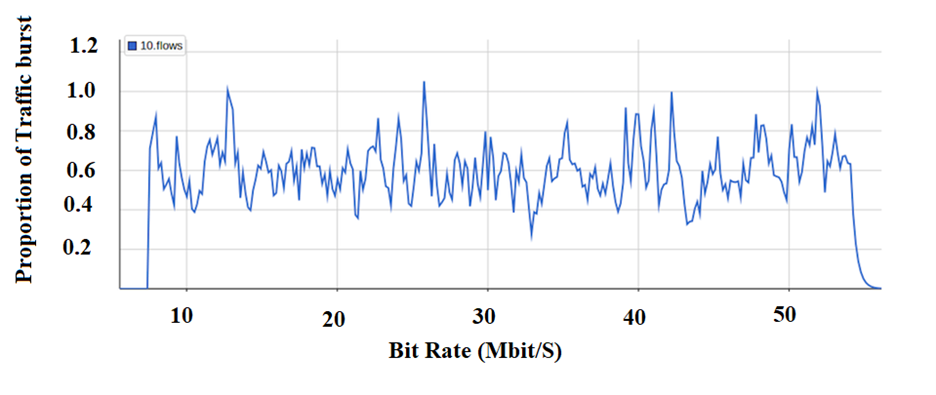Ns3 Projects
AI based Bursty Traffic implementation in NS3 projects
We do support AI based Bursty Traffic implementation in NS3 projects
Bursty traffic is a common characteristic of many real-world network applications such as video streaming, file transfers, and online gaming. This type of traffic is characterized by periods of high-volume data transmission followed by periods of relative inactivity. Traditional network protocols and simulations often struggle to accurately model and handle bursty traffic, leading to performance inefficiencies and inaccurate results. AI-based Bursty Traffic Implementation in NS3 Projects helps overcome these limitations by using intelligent algorithms for more realistic modeling.
NS3 provides a framework for implementing bursty traffic generators and receivers, but these models often lack the ability to capture the complex dynamics of real-world bursty traffic patterns. AI algorithms can be integrated into NS3 to generate more realistic bursty traffic patterns and enhance the accuracy of network simulations.

AI-based Bursty Traffic Implementation in NS3 Projects
AI-based Bursty Traffic Implementation in NS3 Projects can be achieved through various techniques, including:
Machine Learning: Machine learning algorithms can be trained on real-world traffic traces to learn the statistical properties of bursty traffic, such as arrival rates, burst durations, and packet sizes. These models can then be used to generate synthetic bursty traffic patterns that closely resemble real-world traffic characteristics.
Neural Networks: Neural networks, particularly recurrent neural networks (RNNs), can be employed to capture the temporal dependencies and patterns inherent in bursty traffic. RNNs can learn to generate traffic patterns that evolve over time, mimicking the bursts and lulls observed in real-world traffic.
Reinforcement Learning: Reinforcement learning algorithms can be used to optimize bursty traffic generation parameters, such as burst duration and inter-burst intervals, based on network performance metrics. This approach can lead to more efficient and realistic bursty traffic patterns that maximize network utilization while maintaining performance requirements.
Protocols Used for AI-based Bursty Traffic Implementation in NS3 Projects
AI-Enhanced Traffic Generators: These protocols use AI algorithms to generate bursty traffic patterns that are more realistic and representative of real-world traffic characteristics.
AI-Powered Traffic Receivers: These protocols use AI techniques to analyze and process bursty traffic, improving the efficiency and accuracy of network simulations.
AI-Based Traffic Adaptation Mechanisms: These protocols use AI algorithms to adapt network parameters and protocols to handle bursty traffic effectively, optimizing network performance and resource utilization.
Benefits of AI-based Bursty Traffic Implementation in NS3 Projects
Enhanced Simulation Accuracy: AI-based Bursty Traffic Implementation in NS3 Projects improves the accuracy of network simulations by generating more realistic traffic patterns that reflect real-world dynamics.
Improved Network Performance Evaluation: Enables more accurate performance evaluation under bursty traffic conditions, aiding better optimization and capacity planning.
Development of AI-Powered Protocols: Facilitates the creation of network protocols specifically designed to handle bursty traffic efficiently.
Reduced Simulation Overhead: Reduces the computational overhead associated with simulating bursty traffic, making simulations more efficient and scalable.
Conclusion
AI plays an increasingly important role in enhancing the modeling, simulation, and analysis of bursty traffic in NS3. AI-based Bursty Traffic Implementation in NS3 Projects provides researchers and engineers with tools to build more realistic, efficient, and intelligent network simulations. As AI continues to evolve, its role in bursty traffic modeling will become even more critical, enabling resilient, adaptive, and high-performance network infrastructures.

